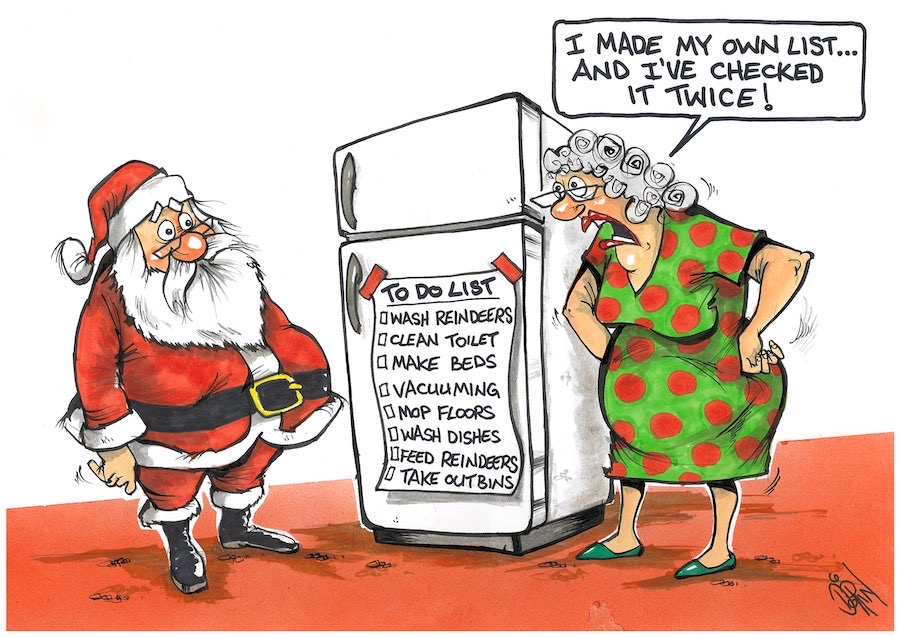
“Inflation and general market conditions are causing more difficulties than I have seen during my 37 years in practice.” Chartered accountant GAIL FREEMAN is troubled at the timing of a new tax impost on small businesses.
In the mid-year economic statement (MYEFO) in December, the treasurer announced that the general interest charge (GIC) and shortfall interest charge (SIC) deductions would be removed effective from July 1 2025.

Ironically, the ATO is now paying interest to taxpayers who pay their tax early. But for those who pay late, particularly small businesses and sole traders, most of whom are currently struggling, the deduction will be denied.
If you pay your tax late you are charged GIC or SIC if you incorrectly self-assess the amount of tax you owe. The proposed legislation will deny you the ability to claim these charges as deductions.
Paying GIC to the ATO is very expensive, currently 11.38 per cent. Making it non-deductible means that it will be an even bigger impost on small businesses at a time when inflation and general market conditions are causing more difficulties than I have seen during my 37 years in practice.
Every day I talk to clients who tell me how hard it is, how their sales have gone down and how they’re having difficulty making ends meet and paying their tax.
The Commissioner of Taxation does have a discretion to remit GIC and SIC in extenuating circumstances. However, recently the ATO is taking a much harder line on remissions. And, of course, with the higher interest charges, due to recent interest rate rises, this will just make it that much more difficult for businesses that are struggling.
One of the difficulties with this proposal is the short time frame. With 18 months lead time from the announcement this is too short. Often businesses make payment arrangements over two years. Had there been a longer lead time it is fair to say that some businesses may have taken an alternative approach to paying their tax debt.
If you have a payment arrangement with the ATO and discover partway through the time period that the interest is no longer deductible it can put a big dent in budgets and cash flows.
There is, of course another option for those small businesses – borrow from an alternative source, which could make the interest tax deductible. However, in most small businesses the directors already have their houses on the line as collateral and for sole traders who are struggling they may not be able to secure funds. This would make the cost of borrowing very high. It seems this is just the wrong time to introduce this measure.
Then there is, of course, the question of existing tax debt that many businesses may have and without adequate repayment arrangements.
Making a payment arrangement is a fairly simple process if the debt is less than $200,000 and can be done over the phone.
You may be required to give estimates of your cash flow, future cash flow and future earnings so that the ATO can assess your capacity to repay.
Even so you are still borrowing from the ATO and the interest will cease to be deductible in July 2025. If you default on a payment arrangement or you have already defaulted you may have a problem making another payment arrangement.
I appreciate that the ATO has to protect the revenue, but there are times like this when the actions do not seem to fit the current economic climate. At the end of the day this is not the fault of the affected small businesses.
If you have a debt and you receive a director penalty notice, talk to your accountant immediately. Legal action can be taken against you as a director to recover the debt.
If you are a sole trader and you have a debt, the ATO can garnishee the debt from your bank account. So it is really important that you take action now on any tax debt that you have.
If you need help with tax debt or any other tax matter contact the experts at Gail Freeman & Co Pty Ltd on 02 6295 2844, email info@gailfreeman.com.au or visit gailfreeman.com.au
Disclaimer
This column contains general advice, please do not rely on it. If you require specific advice on this topic please contact Gail Freeman or your professional adviser. Authorised Representative of Lifespan Financial Planning Pty Ltd AFS Lic No. 229892.
Who can be trusted?
In a world of spin and confusion, there’s never been a more important time to support independent journalism in Canberra.
If you trust our work online and want to enforce the power of independent voices, I invite you to make a small contribution.
Every dollar of support is invested back into our journalism to help keep citynews.com.au strong and free.
Thank you,
Ian Meikle, editor




Leave a Reply